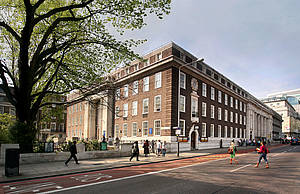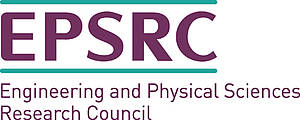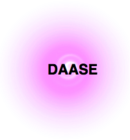The 49th CREST Open Workshop - Software Architecture and Technical Debt
Date: 28 and 29 November 2016
Venue: William Penn Suite, Friends House, 173-177 Euston Rd, London NW1 2BJ

Overview:
It has been widely observed that software engineers often implement 'not quite right' solutions to gain value in form of fast delivery and prototyping. Moreover, it is believed that engineers resist attempts to change systems to avoid disruption and other costs this might incur, thereby building up a set of delayed interventions known as technical debt. This poses significant challenges to research and practice, including measuring and understanding technical debt, managing and ameliorating its effects, and providing automated and semi automated support to software engineers. This workshop will focus on software architecture and design, and the role it has to play in addressing these issues of technical debt. It will draw together experts in software architecture, measuring and understanding technical debt, and the provision of automated and semi automated support.
Speakers:
Alessandro Garcia, Informatics Department, The Pontifical Catholic University of Rio de Janeiro, Brazil
Fabio Palomba, Department of Computer Science, University of Salerno, Italy
Gabriele Bavota, Faculty of Informatics, Università della Svizzera italiana, Switzerland
Jens Krinke, CREST Centre, SSE Group, Department of Computer Science, UCL, UK
Lu Xiao, Computer Science, Drexel University, USA
Marouane Kessentini, Computer and Information Science, University of Michigan, USA
Matheus Paixao, CREST Centre, SSE Group, Department of Computer Science, UCL, UK
Paris Avgeriou, Johann Bernoulli Institute for Mathematics and Computer Science at the University of Groningen, The Netherlands
Stephany Bellomo, Carnegie Mellon’s Software Engineering Institute, Pittsburgh, USA
Will Snipes, ABB Corpprate Research, USA
Yun Lin, Department of Computing, National University of Singapore, Singapore
Yuanfang Cai, Computer Science, Drexel University, USA
Schedule:
Day 1 – 28 Nov
10:30 – Pastries
11:00 – Introductions (Videos: 480p, 720p)
11:30 - Lu Xiao - Identifying and Quantifying Architectural Debt (Slides, Videos: 480p, 720p)
11:50 – Discussion
12:00 - Alessandro Garcia - Code Smells Flock Together: Are Smell Agglomerations Indicators of Design Problems? (Videos: 480p, 720p)
12:20 – Discussion
12:30 – Lunch
13:30 - Stephany Bellomo (Slides: 1 and 2, Videos: 480p, 720p)
13:50 - Discussion
14:00 - Will Snipes - Technical Debt in Long-Lived Systems
14:20 – Discussion
14:30 - Jens Krinke - Code Duplication: A Measurable Technical Debt? (Slides, Videos: 480p, 720p)
14:50 – Discussion
15:00 – Refreshments
15:30 – Paris Avgeriou - An outlook on Technical Debt Management (Slides, Videos: 480p, 720p)
15:50 - Discussion
16:00 - Marouane Kessentini - Search-based Refactoring in Practice: Foundations, Challenges and Recent Advances
16:20 – Discussion
16:30 – Final discussion and close
Day 2 – 29 Nov
10:30 – Pastries
11:00 – Gabriele Bavota - What I (don’t) know about refactoring and code smells
11:20 - Discussion
11:30 - Fabio Palomba -Mining Version Histories for Detecting Code Smells (Slides, Videos: 480p, 720p)
11:50 – Discussion
12:00 - Yuanfang Cai - Decoupling Level: A New Metric for Architectural Maintenance Complexity (Slides, Videos: 480p, 720p)
12:20 – Discussion
12:30 – Lunch
13:30 - Matheus Paixao - Cohesion and Coupling Optimisation: Balancing Improvement and Disruption (Slides, Videos: 480p, 720p)
13:50 – Discussion
14:00 - Yun Lin (Slides, Videos: 480p, 720p)
14:20 – Discussion
14:30 – Break out session
15:00 – Refreshments
15:30 – Feedback from break out
16:00 – Final discussion and close
Register:
Registration for the workshop has now closed
This workshop is supported by the following sponsors:



Registered attendees:
1. Mark Harman, CREST Centre, SSE Group, Department of Computer Science, UCL, UK
2. Matheus Paixao, CREST Centre, SSE Group, Department of Computer Science, UCL, UK
3. Alessandro Garcia, Informatics Department, The Pontifical Catholic University of Rio de Janeiro, Brazil
4. Gabriele Bavota, Faculty of Informatics, Università della Svizzera italiana, Switzerland
5. Lu Xiao, Computer Science, Drexel University, USA
6. Yun Lin, Department of Computing, National University of Singapore, Singapore
7. Yuanfang Cai, Computer Science, Drexel University, USA
8. Bashar Nuseibeh, Department of Computing, Open University, UK
9. Fabio Palomba, Department of Computer Science, University of Salerno, Italy
10. Emmanuel Letier, SSE Group, Department of Computer Science, UCL, UK
11. Chris Simons, Department of Computer Science and Creative Technologies, University of the West of England, UK
12. Jens Krinke, CREST Centre, SSE Group, Department of Computer Science, UCL, UK
13. Stephen Cullum, School of Computer Science and Electronic Engineering, University of Essex, UK
14. Mark Micallef, Faculty of ICT, University of Malta, Malta
15. William Grosky, Computer and Information Science, University of Michigan, USA
16. Sara Hassan, School of Computer Science, University of Birmingham, UK
17. Marouane Kessentini, Computer and Information Science, University of Michigan, USA
18. Paris Avgeriou, Johann Bernoulli Institute for Mathematics and Computer Science at the University of Groningen, The Netherlands
19. Will Snipes, ABB Corporate Research, USA
20. David White, CREST Centre, SSE Group, Department of Computer Science, UCL, UK
21. Saheed Busari, SSE Group, Department of Computer Science, UCL, UK
22. Jie Zhang, Institute of Software Engineering, Peking University, Beijing, China
23. Nicolas Gold, CREST Centre, SSE Group, Department of Computer Science, UCL, UK
24. Jacek Dabrowski, SSE Group, Department of Computer Science, UCL, UK
25. Paolo Falcarin, School of Architecture Computing and Engineering, University of East London, UK
26. Chaiyong Ragkhitwetsagul, CREST Centre, SSE Group, Department of Computer Science, UCL, UK
27. Rachel Sparks, Translational Imaging Group, Department of Medical Physics & Biomedical Engineering, UCL
28. Huayao Wu, Nanjing University, China
29. Ingrid Nunes, Universidade Federal do Rio Grande do Sul (UFRGS), Brazil and TU Dortmund, Germany
38. David Štefan, City Pantry, UK
31. Lingbo Li, CREST Centre, SSE Group, Department of Computer Science, UCL, UK
32. Olawole Oni, SSE Group, Department of Computer Science, UCL, UK
33. Marinos Kintis, Interdisciplinary Centre for Security Reliability and Trust (SnT), University of Luxembourg, Luxembourg
34. José Raúl Romero, University of Córdoba, Spain
35. Julian Ghionoiu, Be Faster, UK
36. Michael Godfrey, University of Waterloo, Ontario, Canada
37. Carlos Gavidia, CREST Centre, SSE Group, Department of Computer Science, UCL, UK
Photos:
